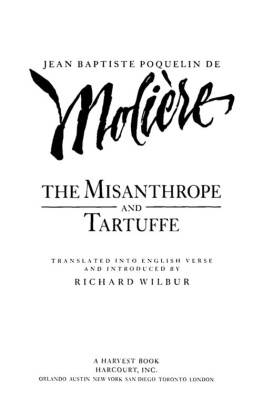AUTHOR'S PREFACE.
The sketches now offered to the reader have most of them been already published in parts, in magazines and reviews. I have been advised to collect them into one work, in order to make their tendency and their spirit better understood.
The end I proposed to myself at the time I wrote them, was to efface the prejudices which the decrepit schools of the Revolution, and of the Empire, had cast over the vast intellects who have had the direction of the government in various countries, or who still continue to guide the state. This end, I think, was partly gained by the four sketches of the career of Prince Metternich, Counts Pozzo di Borgo and Nesselrode, and the Duke of Wellington. I have considered it the more essential to complete this publication at present, because, for some years past, people appear only to take pleasure in extolling those who have been engaged in the work of destruction. The most illustrious public bodies take pleasure in listening to the praises of those who have ruined the old state of society, and no man is considered clever, learned, or virtuous, unless he has been at least half a regicide. As for me I request a little space for the politicians who create, preserve, or add to a state,for the men whose works still endure, and survive all those who declaimed against them. I would give all the fame of the Radicals of 1791, of the year III. , or the year VIII. , for the smallest portion of the abilities of Cardinal Richelieu.
It was not at random that I selected the names of the statesmen of whom an account is here to be met with; they each represent an ideaa systema policy. Prince Metternich is the creator of the theory of the balance of power and armed neutrality, which has obtained a very exalted rank for Austria among European powers; Prince Talleyrand brought back among us the temperate diplomacy of the Empire, of the first days of the Restoration, and of the Revolution of 1830; Count Pozzo di Borgo personifies the persevering tact of European policy and the Russian system since the year 1814; the chancellor, M. Pasquier, exhibits the administration of the latter part of the reign of Napoleon, and he was, also, the moderate minister of the Restoration; the Duke of Wellington is England under arms, and the active spirit of the Tories; the Duc de Richelieu is the symbol of probity in affairs, and of great unrequited serviceshe is the man who delivered his country from the dominion of a stranger, and yet with whose name the present generation is, perhaps, less acquainted than with that of any orator at the hustings; Prince Hardenberg represents Prussia at first holding a neutral course, then advancing with her poetical universities; Count Nesselrode has been Chancellor of Russia for the last thirty years; and, finally, I have raised to its proper exalted position the much-belied character of Lord Castlereagh, the faithful interpreter of the views of the Tory party, the worthy successor of Mr. Pitt, and who preserved England and added to her power. These sketches, therefore, by their account of the different ministers, form a vast history of the cabinets of Europe.
Many new details will be found in these portraits, and my admiration for intellectual and powerful minds has made me strive to perfect them. Being quite unconnected with the agitations of the present times, I have not mentioned in these pages any name mixed up with the dissensions of the press and the tribune. Some of the politicians of the present day were, however, the noble friends of the Duc de Richelieu, and others afforded him the aid of their talents and sagacity. May they continue their career, without becoming weary and discouraged in the difficult paths of Conservatism and order! May they persevere, in spite of the misery of holding office in changeful times! The heart of Pitt was often deeply pained while arranging his magnificent work, and England now pronounces him the prince of statesmen. Toil and trouble are the condition of man, and nothing strong or durable ever was created, without raising a clamour of opposition from beings of inferior intellects, violent tempers, and disappointed ambition.
June 1843.
Note. The following pages being merely a translation, the Editor has found it necessary to abstain from any observations on the work of M. Capefigue, and from offering any remarks upon the sentiments of this able writer, even where he may materially differ with him.
June 1845.
PRINCE METTERNICH.
The Austrian government, which is composed of old hereditary states and conquests of a later date, a sort of chequer-work of provincial privileges and immunities, may be said to be the creation of a statesman, who must be placed in a superior rank to all others.
It is not only under the aspect of a long and brilliant diplomatic career that we must regard the life of Prince Metternich, we must also look upon him as the head of the executive organisation, which includes so many various interests, and such a diversity of national characters and feelings, under the government of one sceptre.
Cast your eyes over the provinces which extend from the centre of Germany into Poland, from the extremity of Gallicia as far as Venice and Milan, from Zara on the Adriatic to Mantua, the key of Lake Garda and of the Tyrol, an assemblage of richer countries or more opulent cities cannot be met with. To Metternich belongs the honour of having already, for above thirty years, maintained his hold upon these various nations; he has realised the most difficult system of local administration and of a central government, great domestic liberty, with, at the same time, careful surveillance, an active police with very indulgent toleration, the most extensive credit with the least oppressive taxation. One might compare the Austrian government to the father of a family, anxious and rather strict with his children; the elder ones are tractable, the younger sometimes unruly, over whom he keeps a tight rein, in order that it may as seldom as possible be necessary to have recourse to chastisement.
Railways and industrial establishments are becoming numerous in Austria; her navy is increasing on the Adriatic, and is a means of circulating her flourishing manufactures. Metternich has thus caused the age of labour to succeed to that of war and conquest. The ancient constitution of Germany was destroyed at the peace of Presburg, during the time of the contemptible and fragile assembly of the Confederation of the Rhine. The house of Austria then renounced the old imperial crown; but a new existence has opened for it, and, after innumerable reverses under the Republic and Napoleon, it again reared its head with a new state of political life and of military power. Since the year 1813, Austria has been constantly called upon to play a great part in the affairs of Europe, and Metternich has succeeded in giving to her politics a character of perseverance, or, rather, of immutability, the result of an idea nobly conceived, and then worked out like a mission he felt intrusted to accomplish.




![St. Jean-Marie Baptiste Vianney - The Little Catechism of the Cure of Ars (with Supplemental Reading: Confession: Its Fruitful Practice) [Illustrated]](/uploads/posts/book/270052/thumbs/st-jean-marie-baptiste-vianney-the-little.jpg)





